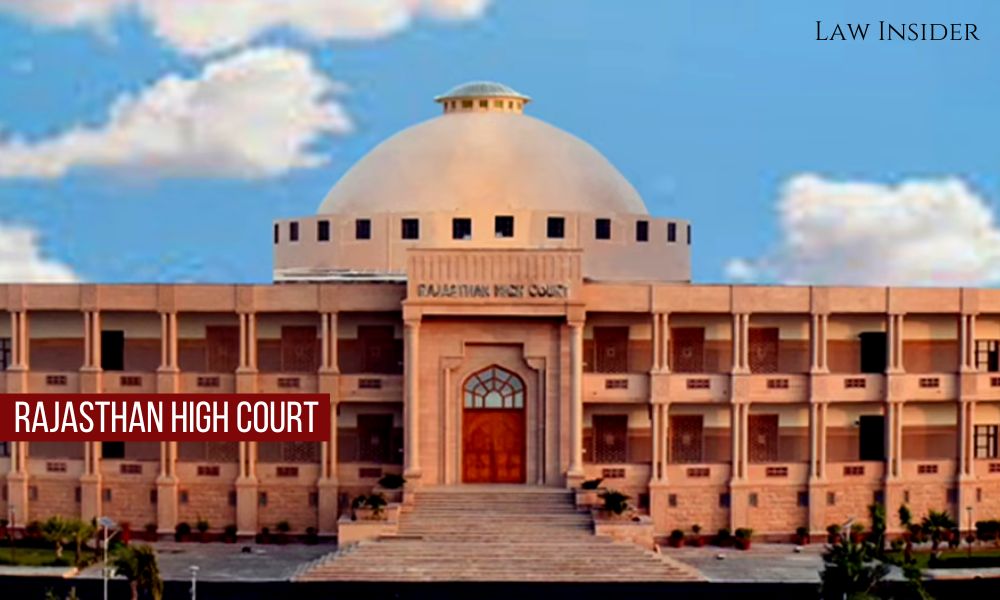LI Network
Published on: November 09, 2023 at 10:51 IST
The Rajasthan High Court has invalidated the dismissal order of a deceased Head Constable who was allegedly caught on an audio clip demanding a bribe for the release of a vehicle carrying liquor.
In a single-judge decision, Justice Anoop Kumar Dhand pointed out that the dismissal order was executed without conducting an inquiry or adhering to the procedure outlined in the Rajasthan Civil Services (Classification, Control, and Appeal) Rules, 1958.
The Court clarified that the removal of the petitioner from service was carried out under Rule 19 (ii) of the Rules of 1958 without an inquiry and in disregard of the procedure stipulated in Rules 16, 17, and 18. It emphasized that the disputed question regarding whether the audio clip contained the petitioner’s voice or not could have been ascertained through an inquiry.
Rule 19 deals with a special procedure for removing a Government Servant when the Disciplinary Authority is convinced, in writing, that it is not reasonably practicable to follow the prescribed procedure under the aforementioned rules.
The petitioner’s legal representatives argued that the respondents did not provide a satisfactory reason as to why it was not reasonably practicable to follow the procedure prescribed in Rules 16, 17, and 18. They contended that another Head Constable involved in the same incident was subjected to suspension and disciplinary proceedings, creating discrimination against the petitioner.
On the other hand, the State’s counsel claimed that the petitioner’s voice in the audio clip was verified by three individuals, justifying the use of Rule 19 (ii). They argued that negative quality cannot be claimed as a matter of right, and thus, the petitioner cannot demand parity with the other Head Constable’s case.
The Court stressed that the obligation to record reasons under Rule 19, when deviating from the norm, must be strictly adhered to. Invoking such power without conforming to the constitutional mandate would render the penalty order void.
The Court relied on several Supreme Court judgments to support its decision, emphasizing that the petitioner and his co-delinquent were treated differently without valid reasons.
The Court observed that the respondent drew a presumption of the petitioner’s demand for money based on the audio clip, lacking veracity, admissibility, or corroborative evidence.
Since the petitioner passed away during the proceedings, the Court declared the removal order invalid and deemed that the petitioner had died in service. Consequently, the petitioner’s legal representatives are entitled to receive arrears of salary and terminal benefits.
The Court directed the State to pay the arrears of the petitioner’s salary from the date of termination until his death and provide all terminal benefits to his legal representatives within three months.
Case Name: Hanuman Ram (Deceased) through Legal Representatives v. State of Rajasthan

